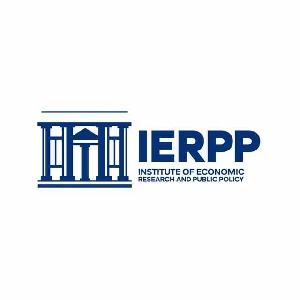- Home - News
- Elections 2024
- News Archive
- Crime & Punishment
- Politics
- Regional
- Editorial
- Health
- Ghanaians Abroad
- Tabloid
- Africa
- Religion
- Photo Archives
- Press Release
General News of Tuesday, 8 April 2025
Source: www.ghanawebbers.com
IERPP calls for public audits of seized assets following Sapeiman warehouse raid
The Institute for Economic Research and Public Policy (IERPP) has called for public audits. They want immediate audits of assets seized by Ghanaian authorities in criminal investigations.
This demand follows a recent raid by National Security operatives. They found large sums of cash, counterfeit US dollars, and suspected gold bars in Sapeiman, Accra. The operation revealed serious financial crimes linked to illegal mining and money laundering.
Concerns have been raised about how confiscated assets are managed. During the Sapeiman raid, officials seized undisclosed amounts of currency and counterfeit banknotes. The government praised the operation, but the IERPP criticized the lack of tracking for seized assets.
Professor Isaac Boadi, Executive Director of the IERPP, highlighted risks from inaction. He stated that without public audits, resources could be lost or misused. Ghanaians deserve to know how these assets will benefit the nation.
The IERPP's call for audits reflects Ghana’s history with high-profile seizures. Often, these assets vanish from public view. Major cases involving cocaine and counterfeit currency raise questions about accountability.
In 2006, Ghana made headlines when 77 parcels of cocaine were linked to MV Benjamin. Despite arrests, including a police chief, the case collapsed due to witness intimidation. Only one suspect was convicted while others were acquitted.
Nearly ten years later, another 2,310 kilograms of cocaine were intercepted at Tema Port. Authorities arrested 11 suspects but faced similar issues with witness intimidation. Only one suspect was convicted again.
In 2018, investigators uncovered a scheme where cocaine was disguised as mining equipment. Seven foreign nationals were arrested but no audits were conducted on seized items afterward.
In 2021, a passenger arriving from Brazil was caught with two kilograms of cocaine at Kotoka International Airport. Both he and an accomplice received prison sentences but raised concerns about airport screening effectiveness.
In 2023, authorities seized 1.8 tons of cocaine and $2 million in counterfeit dollars at Tema Port linked to drug cartels. Fifteen suspects were arrested; however, clarity on managing these assets remains lacking.
The IERPP argues that failing to audit seized assets fosters corruption and erodes trust among citizens. For example, in the “Gold-for-Drugs” case from 2018, no audits determined the origin or value of suspected funds used for illegal activities.
Professor Boadi noted a troubling pattern: major seizures lead to fleeting headlines without accountability. He warned that the Sapeiman raid should not follow this cycle.
The IERPP also pointed out contradictions in government policies promoting economic stability while neglecting illicit gold trading oversight. The Sapeiman raid exposed gaps between policy promises and actual enforcement efforts.
To improve asset management transparency, the IERPP proposed a three-part strategy:
First, they advocate for independent audits by a non-partisan committee to disclose details about confiscated assets like cash and gold.
Second, they emphasize creating digital tracking systems for real-time logs of seized items to prevent manipulation or negligence during custody transitions.
Finally, they urge reinvesting audited funds into critical sectors such as healthcare and education to promote equitable growth through seized resources.
As National Security continues its search for suspects from Sapeiman's raid, citizens are calling for transparency amid empty promises from authorities. For Ghana to make progress against crime effectively, accountability must replace opacity regarding seized assets.











